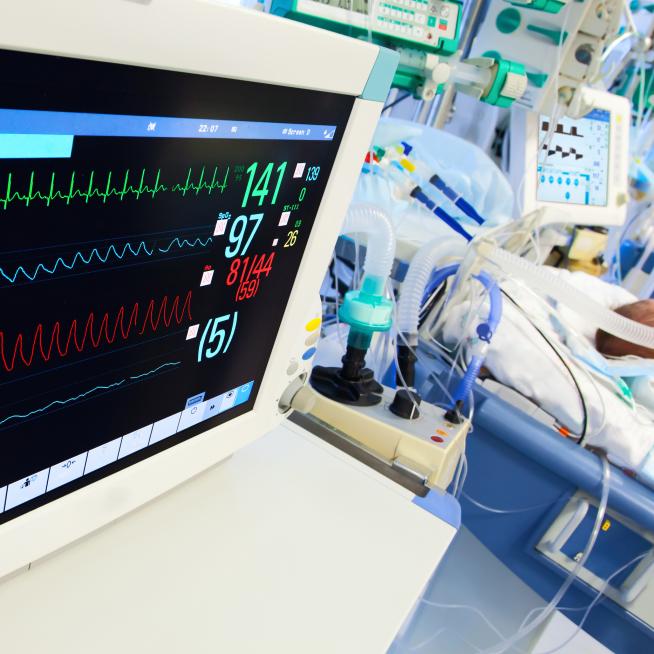A clear winner against AKI? Propofol vs. sevoflurane in valvular heart surgery

ARTICLE REVIEW
Propofol, widely used in anaesthesia, has structural similarity to tocoferol and is known to have immuno-modulatory properties in animal studies. A clinical attenuation of acute kidney injury (AKI) risk, a condition with multiple aetiologies, had not previously been demonstrated in cardiac surgery patients. Specifically, previous prospective (1,2) and retrospective (3) studies did not find that propofol did not prevent AKI over inhalational anaesthetics in cardiac surgery.
In their study(4), Young-Chul et al. randomised adults undergoing planned valular heart surgery under cardiopulmonary bypass to receive either propofol or sevoflurane anaesthesia. The authors found a significant reduction in the incidence of Acute Kidney Injury (AKI) in the group randomised to received propofol (37.5% vs 10.7%, p is equal to 0.001). They also demonstrated an attenuated proinflammatory response in patients receiving propofol. While the small sample size may limit interpretation, this provocative finding mandates an urgent multicentre study.
“The authors found a significant reduction in the incidence of Acute Kidney Injury (AKI) in the group randomised to received propofol…”
The group found a relative risk for AKI incidence (AKIN criteria) in the propofol group compared to the sevoflurane group of 0.285. They also showed a reduction in CRP, IL-6, segmented neutrophil counts and CK-MB concentrations in the porpofol arm, suggesting a reduction in the recognised proinflammatory milieu and possible cardioprotection. The length of hospital stay was also reduced in patients who received propofol.
This was a well designed study with standardised intraoperative anaesthetic and cardiopulmonary bypass management. Patients were matched appropriately. Comparable amounts of infused fluid use, blood loss and urine output were observed intra- and post-operatively. Intraoperative haemodynamic parameters were also similar, although mean noradrenaline dose was slightly lower in the propofol group and furosemide requirements were higher in the sevofluorane group in the 72 hours post-operatively. The striking difference in outcome from the previous prospective study (3) may be at least partially attributable to the higher propofol dose used in this study (125µg/kg/min): lower doses of propofol do not counteract oxygen free radical production.
This is a small study with 112 participants, so the authors acknowledge that the relative risk observed may be an overestimate of the true effect. The choice of sevofluorane as volatile anaesthetic has been questioned as some rodent data has shown two metabolites are nephrotoxic, however this has not been seen in extensive human data. One unavoidable methodologic limitation was the inability to blind the anaesthetist to the choice of anaesthetic drug, although the rest of the medical team were blinded. The lower dose of inotrope could be a confounding factor in AKI development. In addition, the applicability of this study to other groups of patients with a high risk of AKI is uncertain.
At present no pharamcological intervention has proven efficacy in the prevention of AKI post cardiac surgery. The striking reduction in AKI seen with propofol in this study needs to be borne out in a larger multicentre study before it can be put into clinical practice.
This article review was prepared and submitted by Katie Lane on behalf of the ESICM NEXT Committee.
References
1. Lorsomradee S, Cromheecke S, Lorsomradee S, De Hert SG. Effects of sevoflurane on biomechanical markers of haepatic and renal dysfunction after coronary artery surgery. J Cardiothorac Vasc Anaesth. 2006 Oct;20(5):684-90.
2. Story DA, Poustie S, Liu G, McNicol PL. Changes in plasma creatinine concentration after cardiac anaesthesia with isoflurane, propofol, or sevoflurane: a randomised clinical trial. Anaesthesiology. 2001 Oct;95(4):842-8.
3. Saricaoglu F, Akinci SB, Oç B, Kanbak M, Akbulut B, Celebioglu B. The effect of halothane, isoflurane, sevoflurane and propofol infusion on renal function after coronary artery bypass surgery. Middle East J Anaesthesiol. 2006 Jun;18(5):955-64.
4. Young-Chul Y, Jae-Kwiang S, Young S, So-Young Y and Young-Lan K. Anaesthetics influence the incidence of acute kidney injury following valvular heart surgery. Kidney International. 2014 86, 414-422.